Marie Antoinette is a 2006 historical drama film written and directed by Sofia Coppola and starring Kirsten Dunst. It is based on the life of Queen Marie Antoinette in the years leading up to the French Revolution. It won the Academy Award for Best Costume Design. It was released in the United States on 20 October 2006, by Columbia Pictures.
| Marie Antoinette | |
|---|---|
Theatrical release poster | |
| Directed by | Sofia Coppola |
| Produced by |
|
| Screenplay by | Sofia Coppola |
| Based on | Marie Antoinette: The Journey by Antonia Fraser |
| Starring |
|
| Cinematography | Lance Acord |
| Edited by | Sarah Flack |
Production company |
|
| Distributed by | Columbia Pictures |
Release date |
|
Running time | 123 minutes |
| Country |
|
| Language |
|
| Budget | $40 million |
| Box office | $60.9 million |
Screenplay
Fourteen-year-old Maria Antonia is the beautiful, charming, and naïve Archduchess of Austria, youngest of Empress Maria Theresa's daughters. In 1770, the only one left unmarried among her sisters, she is sent by her mother to marry the Dauphin of France, the future Louis XVI, to seal an alliance between the two rival countries. Marie Antoinette travels to France, relinquishing all connections with her home country, including her pet pug "Mops", and meets King Louis XV of France and her future husband, Louis Auguste. The two arrive at the Palace of Versailles, which was built by the King's great-grandfather. They are married at once and are encouraged to produce an heir to the throne as soon as possible, but the next day it is reported to the king that "nothing happened" on the wedding night.
As time passes, Marie Antoinette finds life at the court of Versailles stifling. Her husband's courtiers disdain her as a foreigner and blame her for not producing an heir, although the fault really lies with her husband, for the marriage remains unconsummated for an inordinate amount of time. The French court is rife with gossip, and Marie Antoinette consistently ruffles feathers by defying its ritualistic formality. Marie Antoinette also refuses to meet or speak with Jeanne Bécu, Madame du Barry, the mistress of Louis XV. Over the years, Maria Theresa continues to write to her daughter, giving advice on how to impress and seduce the Dauphin. Marie's attempts to consummate with her husband fail and the marriage remains childless. Marie spends most of her time buying extravagant clothes and gambling. After a masquerade ball, Marie and Louis return to find that the King has smallpox; he orders du Barry to leave Versailles and soon dies. Louis XVI is crowned King of France, with Marie as Queen.
Marie Antoinette's brother, Joseph II, Holy Roman Emperor, comes to visit, counseling her against her constant parties; advice that she finds easy to ignore. Joseph meets Louis XVI at the Royal Zoo and explains to him the "mechanics" of sexual intercourse in terms of "key-making", as one of the King's favorite hobbies is locksmithing. Thereafter, the King and Marie Antoinette have sex for the first time, and on 18 December 1778, Marie Antoinette gives birth to a daughter, Princess Marie Thérèse of France. As the child matures, Marie Antoinette spends much of her time at the Petit Trianon, a small chateau in the park of Versailles. It is also at this time that she begins an affair with Axel Fersen. As France's financial crisis worsens, food shortages and riots increase, her public image has completely deteriorated by this point: her luxurious lifestyle and seeming indifference to the struggles of the French people earned her the title "Madame Deficit".
As the queen matures, she focuses less on her social life and more on her family and makes what she considers to be significant financial adjustments. A year after her mother's death on 29 November 1780, Marie Antoinette gives birth to a son, Louis Joseph, Dauphin of France, on 22 October 1781. She also gives birth to another son, Louis XVII on 27 March 1785, and another daughter, Princess Sophie on 9 July 1786, who dies on 19 June 1787, a month before her first birthday. As the French Revolution erupts with the storming of the Bastille, the royal family resolves to stay in France, unlike most of the court. Rioting Parisians force the family to leave Versailles for Paris. The film ends with the royal family's transfer to Tuileries Palace. The last image is a shot of Marie Antoinette's bedroom at Versailles, destroyed by angry rioters.
- Kirsten Dunst as Marie Antoinette
- Jason Schwartzman as Louis XVI of France
- Judy Davis as Anne de Noailles, "Countess of Noailles"
- Steve Coogan as Florimond Claude, Count of Mercy-Argenteau
- Rip Torn as Louis XV of France
- Rose Byrne as Yolande de Polastron, Duchess of Polignac
- Asia Argento as Madame du Barry
- Molly Shannon as Madame Victoire
- Shirley Henderson as Madame Sophie
- Danny Huston as Joseph II of Austria
- Marianne Faithfull as Empress Maria Theresa
- Jamie Dornan as Axel von Fersen
- Tom Hardy as Raumont
- Al Weaver as (future) Charles X of France
- Mary Nighy as Princesse de Lamballe
- Sebastian Armesto as (future) Louis XVIII of France
- Céline Sallette as Lady in Waiting
- Aurore Clément as the Duchess of Chartres
- Guillaume Gallienne as Charles Gravier, Count of Vergennes
- Jean-Christophe Bouvet as Étienne François, Duke of Choiseul
- James Lance as Léonard Autié
- Mathieu Amalric as Man at Masked Ball
- Joseph Malerba as Queen's Guard
The production was given unprecedented access to the Palace of Versailles. The movie takes the same sympathetic view of Marie Antoinette's life as was presented in Fraser's biography. Coppola has stated that the style for shooting was heavily influenced by the films of Stanley Kubrick, Terrence Malick, and Miloš Forman, as well as by Ken Russell's Lisztomania.
While the action happens in Versailles (including the Queen's Petit Trianon and the Hameau de la Reine) and the Paris Opera (which was built after the death of the real Marie Antoinette), some scenes were also shot in Vaux-le-Vicomte, Château de Chantilly, Hôtel de Soubise and at the Belvedere in Vienna.
Milena Canonero and six assistant designers created the gowns, hats, suits and prop costume pieces. Ten rental houses were also employed, and the wardrobe unit had seven transport drivers. Shoes were made by Manolo Blahnik and Pompei, and hundreds of wigs and hair pieces were made by Rocchetti & Rocchetti. As revealed in the "Making of" documentary on the DVD, the look of Count von Fersen was influenced by 1980s rock star Adam Ant. Ladurée made the pastries for the film; its macarons are featured in a scene between Marie-Antoinette and Ambassador Mercy.
The film's soundtrack contains New Wave and post-punk bands New Order, Gang of Four, the Cure, Siouxsie and the Banshees, Bow Wow Wow, Adam and the Ants, the Strokes, Dustin O'Halloran and the Radio Dept. Some scenes utilize period music by Jean-Philippe Rameau, Antonio Vivaldi and François Couperin. The soundtrack also includes songs by electronic musicians Squarepusher and Aphex Twin.
In several 2006 interviews, Coppola suggests that her highly stylized interpretation was intentionally very modern in order to humanize the historical figures involved. She admitted taking great artistic liberties with the source material, and said that the film does not focus simply on historical facts – "It is not a lesson of history. It is an interpretation documented, but carried by my desire for covering the subject differently."
The film received both applause and some boos during early Cannes Film Festival press screenings, which one reviewer supposes was because some of the French journalists may have been offended that the film was not sufficiently critical of the régime's decadence.
However, film critic Roger Ebert clarified that, in actuality, only a couple of journalists had been booing during the press screening, and that the media had sensationalized the event. He states that booing is more common in Europe, and sometimes done when someone feels that a film is "politically incorrect."
Reception in the United States
The film received mixed reviews, ranging from resounding praise to discerning criticism (mainly aimed at historical inaccuracies and a contemporary soundtrack). On the Rotten Tomatoes website, which compiles mostly North American reviews, the film has been given an approval of 55%, based on 185 reviews with an average rating of 6/10. The website's critical consensus states, "Lavish imagery and a daring soundtrack set this film apart from most period dramas; in fact, style completely takes precedence over plot and character development in Coppola's vision of the doomed queen." Metacritic gives the film a weighted average score of 65 out of 100, based on 37 critics, indicating "generally favorable reviews".
People magazine's movie critic, Leah Rozen, wrote in her wrap-up of the 2006 Cannes Film Festival that, "The absence of political context ... upset most critics of Marie Antoinette, director Sofia Coppola's featherweight follow-up to Lost in Translation. Her historical biopic plays like a pop video, with Kirsten Dunst as the doomed 18th century French queen acting like a teenage flibbertigibbet intent on being the leader of the cool kids' club."
American film critic Roger Ebert gave the film four stars out of four. He states that, "every criticism I have read of this film would alter its fragile magic and reduce its romantic and tragic poignancy to the level of an instructional film. This is Sofia Coppola's third film centering on the loneliness of being female and surrounded by a world that knows how to use you but not how to value and understand you." American film critic for MSN, Dave McCoy, describes it as being a great satire:
I laughed, as I had been doing for the past twenty minutes. I was laughing at the satire, at Coppola's brash approach and from the pure joy that a great film can trigger.
Reception in France
The film's critical reception in France was generally positive. It has an aggregate score of 4/5 on the French cinema site AlloCiné, based on 21 reviews from professional critics. In the French trade journal, Le Film Francais, a third of the critics gave it their highest rating—"worthy of the Palme d'Or." Film critic Michel Ciment similarly rated it as worthy of the Palme d'Or.
Critics who gave the film positive reviews included Danielle Attali of Le Journal du Dimanche, who praised it as "a true wonder, with stunning colors, sensations, emotions, intelligence". François Vey of Le Parisien found it to be "funny, upbeat, impertinent" and "in a word, iconoclastic". Philippe Paumier of the French edition of Rolling Stone said that, "Transformed into a sanctuary for the senses, the microcosm of power becomes this moving drama of first emotions and Marie Antoinette, the most delicate of looks on adolescence". Frodon, editor of Les Cahiers du cinéma, praised Coppola for her "'genius' at portraying adolescent alienation."
Among negative critical reviews, Jean-Luc Douin of Le Monde described Marie Antoinette as "kitsch and roc(k)oco" which "deliberately displays its anachronisms", and additionally as a "sensory film" that was "dreamt by a Miss California" and "orchestrated around the Du Barry or Madame de Polignac playground gossip". Alex Masson of Score thought the film had a script "which is often forgotten to the corruption of becoming a special issue of Vogue devoted to scenes of Versailles".
French critics were annoyed with the film's loose portrayal of real historical events and figures. Although it was filmed at Versailles, to capture the splendor of eighteenth-century royal life, some critics took issue with or did not understand why Coppola intermixed period music with contemporary music, for instance, using soundtracks by artists such as The Cure and The Strokes. Or why she intermixed modern products, such as Converse sneakers with formal period shoes. Although one historian explains that while they may be d
Watch movie Marie Antoinette 2006 Film online on Amazon
Watch movie Marie Antoinette 2006 Film online
Watch The Movie On PrimeLorie Full HD Movie Download
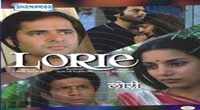
Apna Desh Full HD Movie Download
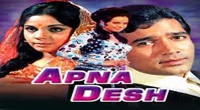
Devta Full HD Movie Download
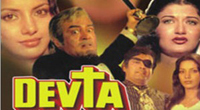
Ganga Aur Suraj Full HD Movie Download
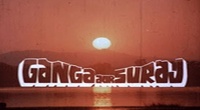
Gharana (1989) Full HD Movie Download
.jpg)
Naukar Full HD Movie Download
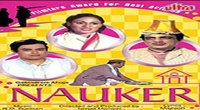
1977 - The History Re-Written Full HD Movie Download
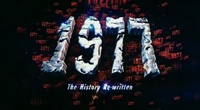
Ullasam Full HD Movie Download
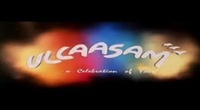
Nee Paathi Naan Paathi Full HD Movie Download
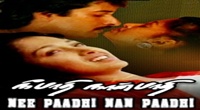
Tantra Mantra Full HD Movie Download
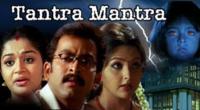
Aaj Ka Naya Yelgaar Full HD Movie Download

Shabnam Full HD Movie Download
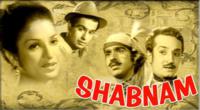
Unnikale Oru Kadha Parayam Full HD Movie Download
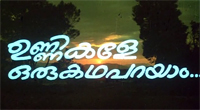
Kick (Telugu) Full HD Movie Download
.jpg)
Dhum Full HD Movie Download
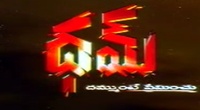
Kokila Full HD Movie Download
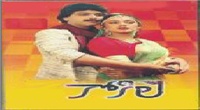
Veta Full HD Movie Download
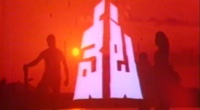
Alludu Kosam Full HD Movie Download
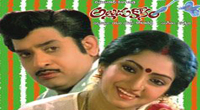
Ayyappa Swamy Mahathyam Full HD Movie Download

Pyaar Impossible Full HD Movie Download

Laaga Chunari Mein Daag Full HD Movie Download

Download latest Movie from bollywood
- 1> baaghi 3
- 2> THE SKY IS PINK MOVIE FULL STORY AND REVIEW
- 3> Luka Chuppi
- 4> TO ALL THE BOYS I’VE LOVED BEFORE
- 5> Kabir Singh
- 6> Street Dancer 3D
- 7> Simmba
- 8> Gone Girl
- 9> The Girl Who Lived
- 10> Ludo
- 11> DILWALE DULHANIA LE JAYENGE
- 12> GUILTY
- 13> The Godfather
- 14> Adventures of Rusty
- 15> Sooryavanshi
- 16> Satyameva Jayate 2
- 17> Thappad
- 18> Bhool Bhulaiyaa 2
- 19> KGFChapter 2
- 20> Mardaani 2
- 21> Pinjar
- 22> Shivaji maharaj
- 23> Ek Villian 2
- 24> Hungama 2
- 25> Divergent
- 26> Mumbai Saga
- 27> The Internship
- 28> HIT (telugu)
- 29> Panga
- 30> The perfect date
- 31> 16 December
- 32> Gopala Gopala (Telugu)
- 33> Brahmastra
- 34> Gangubai Kathiawadi
- 35> Manmadhudu
- 36> Nenu local
- 37> Mahanati
- 38> Shatamanam bavathi
- 39> Lagaan
- 40> After
- 41> MOM
- 42> Shamshera
- 43> Raguvaran BTech
- 44> Khakee
- 45> The villain
- 46> OM
- 47> Mr. perfect
- 48> Bueatifull mind
- 49> Hichki
- 50> Gabbar Singh
- 51> Jogi
- 52> Before Sunrise
- 53> Before Sunset
- 54> Before Midnight
- 55> The Big Bull
- 56> Top Gun: Maverick
- 57> The Purge
- 58> The Sky is Pink
- 59> Laxmmi Bomb
- 60> Sadak 2
- 61> Sufna
- 62> Prithviraj
- 63> PK
- 64> Coolie No 1(2020)
- 65> Black Widow
- 66> Dear Zindagi
- 67> Dil Bechara
- 68> PHIR HERA PHERI
- 69> WAR
- 70> Dostana
- 71> RRR: Roudram Ranam Rudhiram
- 72> Maidan
- 73> Dabbang 3
- 74> Chhalaang
- 75> life as we know it
- 76> SherShaah
- 77> Sandeep Aur Pinky Faraar
- 78> Event Horizon
- 79> 83
- 80> Radhe: Your Most Wanted Bhai
- 81> Gunjan Saxena: The Kargil Girl
- 82> Mr India
- 83> Vivah
- 84> Anokha Bandhan
- 85> Ghost
- 86> Bhoot: Part One - The Haunted Ship
- 87> Haseen Dilruba
- 88> Laal Singh Chaddha
- 89> Qismat
- 90> Rajput
- 91> Drive
- 92> Dil Chahta Hai
- 93> Dil Ki Baazi
- 94> Dil Ka Rishta
- 95> Teesri Manzil
- 96> Dil
- 97> Love Aaj Kal
- 98> Khaali Peeli
- 99> Bunty Aur Babli 2
- 100> Atrangi Re
- 101> Gulabo Sitabo
- 102> Jodi
- 103> Suraj Pe Mangal Bhari
- 104> Deewana
- 105> Attack
- 106> Sardar Udham Singh
- 107> Toofan
- 108> THE LOVEBIRDS
- 109> Jersey
- 110> Ginny Weds Sunny
- 111> Thalaivi
- 112> Shiddat
- 113> Angels vs Zombies
- 114> Koi Mil Gya
- 115> Thank God
- 116> Bhuj: The Pride of India
- 117> Hum Aapke Hain Kaun
- 118> The Platform
- 119> Bird Box
- 120> Roohi Afzana
- 121> Torbaaz
- 122> Nikamma
- 123> World War Z
- 124> Extraction
- 125> Train to Busan
- 126> Life of Pi
- 127> SHAADI MEIN JROOR AANA
- 128> Himmat Aur Mehnat
- 129> To All The Boys: P.S. I Still Love You
- 130> Mimi
- 131> Good Newwz
- 132> Shubh Mangal Zyada Saavdhan
- 133> Raabta
- 134> Harry Potter and the Philosopher's Stone
- 135> Harry Potter and the Chamber of Secrets
- 136> Chhapaak
- 137> War of the Worlds
- 138> Harry Potter and the Prisoner of Azkaban
- 139> Harry Potter and the Goblet of Fire
- 140> MURDER MYSTERY
- 141> Shakuntala Devi
- 142> Bachchan Pandey
- 143> Jayeshbhai Jordar
- 144> Sheer Qorma
- 145> Saina
- 146> 'O' Pushpa I hate tears
- 147> Kedarnath
- 148> MS Dhoni The Untold Story
- 149> Chhichhore
- 150> Badhaai Ho
- 151> Unstoppable
- 152> Oz the Great And Powerful
- 153> The Girl on the Train
- 154> Haathi Mere Saathi 2020
- 155> The Conjuring: The Devil Made Me Do It
- 156> Gandhi Se Pehle Gandhi
- 157> The Song of Scorpions
- 158> Srimanthudu
- 159> Hello Guru Prema Kosame
- 160> Beauty and The Beast
- 161> Black Panther
- 162> Charlie and the Chocolate Factory
- 163> Bole Chudiyan
- 164> Fidaa
- 165> Duvvada Jagannadham
- 166> Bruce Lee: The Fighter
- 167> Hyper
- 168> Yaara
- 169> Red (2020)
- 170> Shivam
- 171> That Is Mahalakshmi
- 172> Nishabdham
- 173> Aashram 2020 web series
- 174> Laxmii
- 175> Mismatched
- 176> STUDENT OF THE YEAR 2
- 177> NAIL POLISH
- 178> Ramprasad Ki Tehrvi
- 179> KAAGAZ
- 180> 12 o Clock
- 181> The Power
- 182> bolo hau
- 183> Tribhanga
- 184> JAMUN
- 185> Madam Chief Minister
- 186> Maasaab
- 187> Aadhaar
- 188> Tanhaji
- 189> Bhaagi 3
- 190> Bhootnath
- 191> MALANG
- 192> Jai Mummy Di
- 193> Haathi Mere Saathi 2021
- 194> Shakeela
- 195> Unpaused
- 196> Annayya
- 197> Vamsoddharakudu
- 198> Mrugaraju
- 199> Narasimha Naidu
- 200> Sankranti
- 201> Manasu Maata Vinadhu
- 202> Anjaane
- 203> Apaharan
- 204> Bachke Rehna Re Baba
- 205> Bewafaa
- 206> Roohi
- 207> Radhe
- 208> Zindagi Khoobsoorat Hai
- 209> Yeh Mohabbat Hai
- 210> Yeh Kya Ho Raha Hai?
- 211> The Tomorrow War
- 212> DehradunDiary
- 213> Meri Shaadi Karaoo
- 214> Matruu Ki Bijlee Ka Mandola
- 215> No One Killed Jesica
- 216> Aag Ka Goola
- 217> Eight Million Dollars
- 218> Three Hundred
- 219> Cats and Dog
- 220> Decoy
- 221> Gold Rush
- 222> You Have Got Mail
- 223> Final Destination three
- 224> Tofan
- 225> Jungle
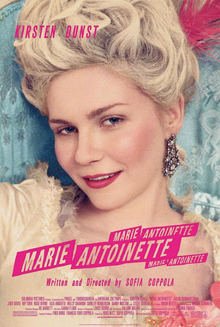 Story of movie Marie Antoinette 2006 Film :
Story of movie Marie Antoinette 2006 Film : 